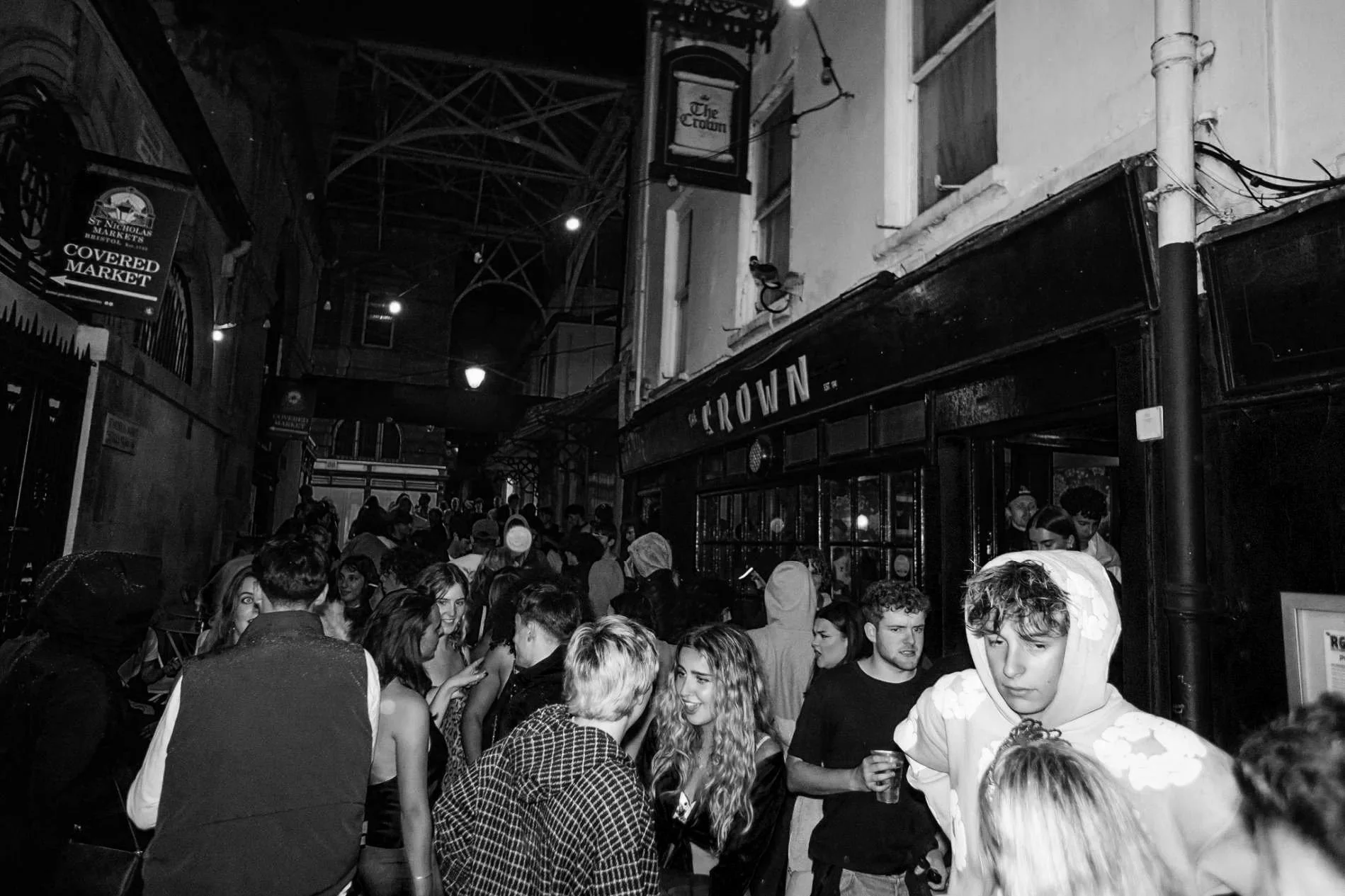Bristol’s Late Nights Are Dying
London’s after-dark identity is collapsing in slow motion. A city once proud of its 24-hour swagger is quietly tucking itself in by midnight. Whole neighborhoods that once pulsed with neon and sweat are now muted, sanitized, and unrecognisable. It didn’t happen overnight — pandemics, rent hikes, council restrictions, and a public too broke to buy more than one round have conspired to throttle the life out of London’s late-night culture.
But here’s the rub: if the so-called global city, the capital of excess, can’t keep its nights alive, what chance does anywhere else have? Bristol, Manchester, Newcastle — the storm is already moving west.
The Economics of Extinction
No one bar “fails” in isolation. They get bled out. A ten percent rent increase here, a staffing bill there, another £1 on the price of Red Stripe. The landlord says the neighborhood’s “changing” — by which they mean a developer is dangling shiny flats in front of them. The council suddenly decides the bass rattling through the floorboards is a public menace. And the customers? Students too skint to buy doubles, punters glued to Deliveroo and Netflix.
This isn’t just a business model under pressure. It’s a ritual sacrifice. Venues that once bankrolled entire subcultures — from grime in London basements to trip-hop in Bristol warehouses — are being dismantled piece by piece.
Bristol’s Fragile Chaos
Bristol still feels like it’s clinging to something primal after midnight. Step into the Thekla on a Saturday, sweat dripping down from the ship’s bulkheads, and you’re reminded this city knows how to live in the dark. Stokes Croft at 2am is still a glorious mess of graffiti, smoke, and bad decisions. Lakota, after surviving more lives than a cat, still throws the kind of nights that chew you up and spit you out into daylight.
But look closer: Bedminster’s working-class pubs closing one after another. Old Market’s basements turned into gyms and offices. Student blocks creeping across the skyline, bringing with them the inevitable noise complaints from people who wanted “vibrancy” but can’t handle basslines past midnight. Even The Crofters Rights, once a beating heart for bands, lives in the shadow of residents who’d rather their flats rose in price than hear a live drum kit.
Bristol’s freakshow hasn’t disappeared — but the walls are closing in.
The Vanishing Hours
The death of late-night isn’t about lost sales; it’s about lost possibility. After-hours, when the sensible world has gone to bed, is when culture happens. That’s when strangers become friends, bands are born, and bad ideas become folklore.
In London, those hours are vanishing. No one’s forming the next Clash or grime collective in a bar that closes at eleven. Bristol has always thrived in those ungovernable spaces — warehouses in St Paul’s, dodgy basements in Montpelier, DJs playing until dawn in fields outside Bedminster. But every time a venue goes dark, another possibility disappears.
The Developers Are Winning
What’s left behind when the bars close? Air-conditioned student dorms, chain coffee shops, “mixed-use retail spaces” with Pret on the corner. Developers tell councils they’re “regenerating” neighborhoods. What they’re actually doing is stripping them for parts.
London has been gutted this way for years — Soho, Camden, Shoreditch all neutered into lifestyle playgrounds for people who Instagram their cocktails but leave before midnight. Bristol’s next if we let it happen. Gloucester Road, once a crawl of late-night debauchery, is now more brunch than bass. Bedminster’s pubs are being traded in for “artisan living.” Even King Street, that last stand of proper, sticky-floored drinking, feels fragile.
Why It Matters
Here’s the truth: late-night bars aren’t just places to get pissed. They’re the crucibles of culture. No Massive Attack without the Dug Out. No Portishead without the forgotten clubs of the ’90s. No punk scene without the Roxy. Lose the bars, and you don’t just lose jobs or tax receipts — you lose the wild, ungovernable heart of a city.
London is proving how quickly it can all slip away. Bristol still has a heartbeat, still has the freaks, still has the fight. But if we don’t defend it — from councils, from landlords, from the polite armies of regeneration — then we’ll wake up one day and realize the party ended while we were scrolling our phones.
Final Round
Late-night bars are the pressure valves of a society that works too much, worries too much, spends too much time alone. They’re where we remember we’re human — messy, loud, unpredictable.
London has already started to forget. Bristol can’t afford to.
